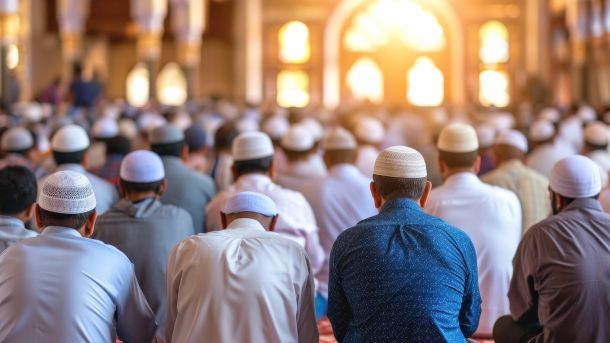News Archive
Jul 19, 2024
Lecture Series: Explanation of Imām al-Nawawī’s Forty Ḥadīth
☀️ August Lecture Series
Explanation of Imām al-Nawawī’s Forty Ḥadīth
Classical Text Consisting of Matter Related to ‘Aqīdah, Fiqh, Worship, Manners and More
w/ Guest Speaker, the Noble Yemenī Scholar Shaykh Sālim Bāmiḥriz
Shaykh Sālim’s bio:
Shaykh Abū Anwar Sālim ibn ʿAbdillāh Bāmiḥriz is a Yemenī scholar who was born and raised in Kismayo, Somalia, before moving to the country of his heritage at twenty years of age.
He studied in Yemen and Saudi Arabia, benefitting from scholars such as Ibn Bāz, Ibn al-ʿUthaymīn, Rabī ibn Hādī…
Jun 24, 2024
The True Believer Enjoys the Blessings of Allāh in This Life and in the Hereafter
On the authority of Ibn ʿAbbās (رضي الله عنهما), the Prophet (صلى الله عليه وسلم) said to a man while exhorting him: “Seize five things before the occurrence of five: Your youth before you reach old age, your health before you are afflicted with sickness, your free time before you are taxed with busyness, your wealth before you become destitute, and your life before death reaches you.”1
Imām ʿAbd al-Raḥmān ibn Nāṣir al-Saʿdī (d. 1391 AH) comments:
When the servant of Allāh truly gains recognition of the purpose of the blessings that have been bestowed upon him, and the fact they all represe…
Jun 24, 2024
When Should the Muʿadhin Call the Iqāmah and What Should the Worshippers Do?
When Should the Iqāmah be Called?
Narrated by Jābir ibn Samurah (رضي الله عنه): Bilāl used to refrain from calling the iqāmah until the Prophet (صلى الله عليه وسلم) would come out. If he came out, he would call the iqāmah upon seeing him.1
[Q]: The imām was late in arriving at the masjid from the prespecified time by a minute and the muʾadhin stood, called the iqāmah, and the congregation began praying. Then, during the ṣalāh the imām entered and prayed with the congregation. After the ṣalāh had concluded, there was a dispute between the imām and the muʾadhin regarding this occurrence. Is th…
Jun 22, 2024
Answering Christian Doubts: Prophethood Is Only Confirmed by Glad Tidings
It is most befitting to know that most of the Christians only confirmed prophethood by relying upon the glad tidings given by preceding prophets. They claim: Glad tidings of ʿĪsá were given by the prophets that preceded him, which is contrary to Muḥammad (صلى الله عليه وسلم) as no prophet ever gave glad tidings of his succession.
Our response is two-fold:
The glad tidings of Muḥammad (صلى الله عليه وسلم) in past books is more frequent than the glad tidings given of the Messiah (عليه السلام). Just as the Jews falsely interpret the glad tidings of the Messiah in their book as not referring…
Jun 22, 2024
The Beloved Status of the Students of Knowledge: The Animate and Inanimate Seek Forgiveness for Them
Narrated by al-Ṭabarānī on the authority of Jābir (رضي الله عنه), the Prophet (صلى الله عليه وسلم) said: “Every creature seeks forgiveness for the one who teaches the people goodness, even the whales in the seas.”1 It was also narrated on the authority of al-Barāʾ ibn ʿĀzib (رضي الله عنه), that the Prophet (صلى الله عليه وسلم) said: “The scholars are the inheritors of the prophets. They are loved by the denizens of the heavens. The whales in the sea seek forgiveness for them should they die until the Day of Judgement.”2
Just as forgiveness being sought has also been confirmed on behalf of th…







